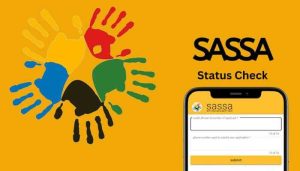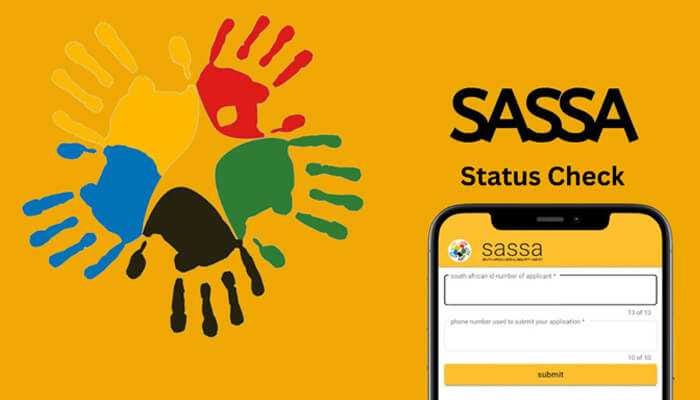
SASSA SRD: Empowering Lives Through Social Relief of Distress
Introduction
In the heart of South Africa’s battle against poverty and inequality lies a crucial safety net for its most vulnerable citizens—the South African Social Security Agency (SASSA). Mandated with the responsibility of delivering social protection and welfare support, SASSA plays a transformative role in millions of lives. Among its initiatives, the Social Relief of Distress (SRD) program stands out as a timely and targeted response to individuals and families facing urgent and unexpected hardship.
CHECK ALSO SASSA Status
Developed as a temporary support mechanism, the SRD grant has proven instrumental in empowering citizens during economic downturns, natural disasters, and personal crises. By offering both immediate relief and opportunities for longer-term stability, the SRD program is a vital part of South Africa’s broader social protection system.
Understanding the SRD Program
The Social Relief of Distress (SRD) program is a humanitarian aid initiative designed to provide short-term financial assistance to people in dire need. Unlike permanent social grants that cater to specific groups such as the elderly, disabled, or children, the SRD grant is available to individuals who do not qualify for other forms of social assistance but are experiencing significant hardship.
CHECK MORE SASSA Status Check
Initially introduced to provide urgent relief during extraordinary circumstances, such as natural disasters or health emergencies, the SRD grant gained national prominence during the COVID-19 pandemic. It served as a vital financial cushion for those who lost their income due to lockdowns, retrenchments, or reduced economic activity.
Who Is Eligible for the SRD Grant?
To ensure that the grant reaches only those who need it most, SASSA has put forth clear eligibility criteria for the SRD program. Applicants must:
-
Be South African citizens, permanent residents, or refugees registered with Home Affairs.
-
Be 18 years or older.
-
Be unemployed and not receiving any income, unemployment insurance, social grant, or financial support from the National Student Financial Aid Scheme (NSFAS).
-
Meet the means test requirement, which ensures that only individuals below a certain income threshold qualify.
This targeted approach helps prioritize support for the poorest households and individuals temporarily affected by unforeseen hardships.
CHECK EVEN MORE SASSA Appeals: A Pathway to Fair Social Support
Application Process
SASSA has worked to ensure that the application process is accessible and user-friendly, minimizing bureaucratic barriers for those in urgent need.
1. Online Applications
Applicants can visit the SRD portal (https://srd.sassa.gov.za) to apply. They are required to enter their ID number, contact details, and banking information. Once submitted, the application undergoes a verification process.
2. WhatsApp and USSD
To accommodate those without internet access, SASSA also accepts applications via WhatsApp (082 046 8553) and USSD codes, offering mobile-friendly options for rural and under-resourced communities.
3. In-person Assistance
Those without access to digital tools can also seek help from local SASSA offices, community centers, or government service points to complete their applications.
Applicants are notified via SMS once their application is approved or declined, and payments are made directly into the individual’s bank account or via alternative collection methods like cash send or retail stores.
Temporary Financial Support with a Long-Term Vision
The SRD grant, though temporary, offers essential relief for struggling individuals and families. With a monthly payment of R350, recipients can use the funds to cover basic needs such as food, clothing, transportation, and shelter. While this amount is modest, for many it represents a crucial lifeline in a time of crisis.
What distinguishes the SRD program from mere financial handouts is its focus on empowerment and recovery. Beyond the cash transfer, SASSA and its partners strive to link beneficiaries with other forms of support:
-
Skills development programs
-
Job placement services
-
Entrepreneurial support
-
Mental health and social counseling
These efforts aim to build resilience, helping beneficiaries regain control over their lives and, where possible, transition back into the workforce or other forms of sustainable income.
Challenges Facing the SRD Program
While the SRD grant has had a profound impact, it is not without its challenges. Key issues include:
1. High Demand and Limited Resources
The sheer volume of applicants, especially during economic crises, has at times overwhelmed the system. Many individuals wait weeks or months for approvals, while others are erroneously declined due to data mismatches or system glitches.
2. Accessibility and Digital Divide
Many rural and marginalized communities face barriers to access, including limited internet connectivity, lack of mobile devices, and low digital literacy.
3. Administrative and Verification Delays
SASSA must cross-reference information with multiple departments (such as Home Affairs and SARS), which can delay processing and increase the risk of errors.
To address these issues, SASSA has been streamlining its application processes, investing in digital infrastructure, and improving communication with applicants. The goal is to ensure timely, fair, and efficient delivery of services.
Looking Ahead: Strengthening Social Relief
The SRD program has demonstrated how timely state intervention can stabilize lives during periods of crisis. Looking forward, there is growing support for the institutionalization of a basic income grant (BIG) in South Africa—an initiative that would build upon the SRD framework to offer more consistent and universal support to low-income citizens.
To make this vision a reality, continued investment, robust policy frameworks, and cross-sector collaboration are essential. The success of SRD has shown that with the right infrastructure and political will, social protection can be both responsive and transformative.
Conclusion
The SASSA SRD program represents more than just temporary relief—it is a testament to the power of social solidarity in times of hardship. By offering emergency support to those in crisis, the program has helped prevent further poverty, protected human dignity, and offered a path toward recovery for many South Africans.
As SASSA continues to refine and expand its outreach, the SRD program serves as a model for inclusive, compassionate governance—ensuring that even in the darkest of times, hope and support are never out of reach.

